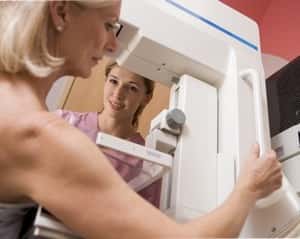
Should doctors be prescribing a drug to prevent breast cancer? The US Preventive Services Task Force (USPSTF) suggests that women at high risk of the disease would probably benefit from anti-estrogen medicines (JAMA, Sept 3, 2019). These include medicines like tamoxifen, raloxifene and aromatase inhibitors such as anastrozole (Arimidex), exemestane (Aromasin) or letrozole (Femara). The committee recommends a drug to prevent breast cancer only for women at relatively low risk for side effects, however.
Who Might Not Benefit from a Drug to Prevent Breast Cancer?
Women who don’t have an increased risk of breast cancer might experience more harm than help as a result of taking such anti-estrogen medicines. Tamoxifen and raloxifene can trigger dangerous blood clots, and tamoxifen also increases a woman’s chance of endometrial cancer. In addition, tamoxifen may make cataracts more likely. Unfortunately, these risks are higher for older women, who are also likely to be at increased risk for breast cancer.
The aromatase inhibitors keep body tissues from making estrogen, which can fuel many forms of breast cancer. They, too, have potential side effects. These include hot flashes, digestive distress, muscle and joint pain and cardiovascular complications such as stroke. Unlike tamoxifen and raloxifene, which tend to prevent bone fractures, aromatase inhibitors may increase a woman’s susceptibility. Nonetheless, for a woman at high risk of breast cancer, such a drug to prevent breast cancer might be worthwhile. Drugs like Arimidex and Aromasin are approved for breast cancer treatment; the FDA has not approved them for prevention.
How the USPSTF Reached Its Conclusions:
The task force notes that the methods for assessing population-level risk of developing cancer are pretty good. However, they do not allow doctors to tell which women will and which women won’t eventually get this diagnosis. That makes it much harder to determine who will benefit most from the preventive prescription.
As a result, each woman needs to confer with her doctor regarding her risk of breast cancer and her potential for adverse reactions. That way, they can decide together if she should take a drug to prevent breast cancer.
Citations
- US Preventive Services Task Force, "Medication Use to Reduce Risk of Breast Cancer." JAMA, Sept 3, 2019. doi:10.1001/jama.2019.11885

